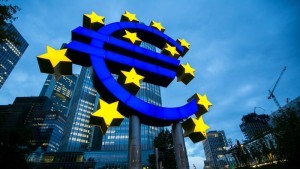Central banks are dumping euros amid concerns over political instability, weak growth and the European Central Bank’s negative interest rate policy — and favour sterling as a long-term, stable alternative.
Despite uncertainty over Brexit — formally triggered last week by prime minister Theresa May — central bankers from around the world see the UK as a safer prospect for their reserve investments than the eurozone, a new poll reveals.
According to a survey published Monday of reserve managers at 80 central banks, who together are responsible for investments worth almost €6trn, the stability of the monetary union is their greatest fear for 2017.
The results — compiled by trade publication Central Banking Publications and the bank HSBC earlier this year — show some respondents have cut their entire exposure to the euro, while others have reduced their holdings of investments denominated in euros to the bare minimum.
More than two-thirds of the 80 central banks had changed their portfolio allocation, while roughly that same amount had changed the duration of their investments.
Developing and emerging-market central banks, some of which are among the world’s biggest reserves holders, were more likely than those from advanced economies to have shifted out of the euro.
The UK’s decision to quit the EU has not affected the popularity of sterling as an investment currency so far, with 71 per cent of respondents saying the attractiveness of the pound was undimmed in the longer term.
While central bankers said they would become more cautious about investing in the pound over the next few years, the survey showed many believe Brexit could provide an opportunity for them to diversify their portfolios further into the future.
Almost 80 per cent of respondents said the election of Donald Trump had not changed their overall view on the US dollar.
Just over a third of the respondents, around half of which were from emerging market central banks, said their concerns over the European single-currency area were based on growing political instability in Europe, which has seen anti-EU parties across the continent secure a larger share of the popular vote in recent years.
The ECB’s negative interest rate policy — intended to spur growth across the eurozone — was identified as another key driver of divestment. The policy, in place since the summer of 2014, has triggered complaints from private banks across Europe, who say it has eaten into their profits. The deposit rate in the eurozone is now minus 0.4 per cent — meaning that lenders in effect pay a levy of that amount on their reserves parked at central banks.
Ask me anything
Explore related questions





